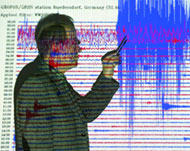Disaster warning to be made a priority
Nearly four weeks after a tsunami devastated communities throughout the Indian Ocean, a world conference has said early warning systems and disaster preparedness are priorities.

Delegates from more than 150 countries at the World Conference on Disaster Reduction, held in Kobe, Japan, failed however to set specific targets or deadlines for implementing the plan. The conference was criticised for failing to put forth concrete proposals and deadlines.
The action plan approved by the conference on Saturday, entilted the Hyogo Framework for Action 2005-2015, says a substantial reduction in the number of victims and amount of destruction is expected as a result of the 10-year plan.
The 26 December tsunami killed more than 226,000 people in the region.
“It is vital to give high priority to disaster risk reduction in national policy, consistent with [governments’] capacities and resources available,” the declaration said as quoted by the BBC.
Concrete action
 |
|
The warning system is planned to |
“We believe it is critically important that the Hyogo Framework for Action be translated into concrete action at all levels,” said the document, which is named after the Hyogo Prefecture of which Kobe is the capital,
The document also says the UN will be put in charge of building the tsunami alert system, which is to be operational in up to 18 months.
But Sarah La Trobe, of the non-governmental organisation Tearfund, said the declaration provided neither exact time frames nor oversight processes for the implementation of the measures and it also failed to assign financial responsibilities.